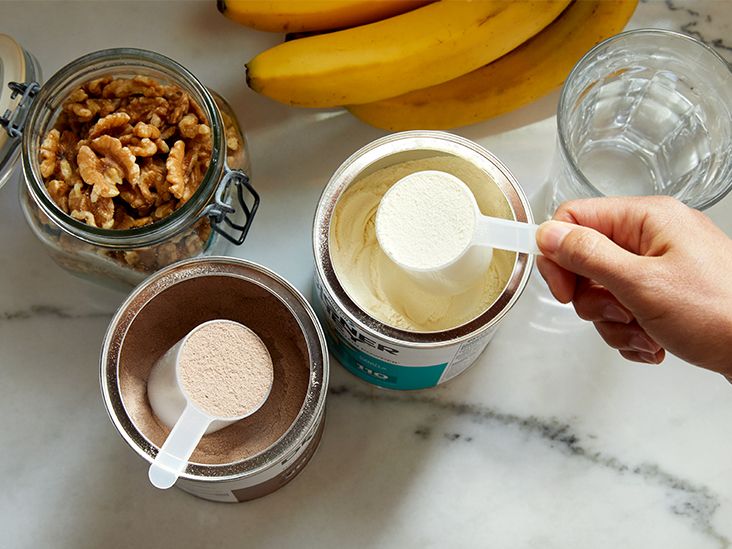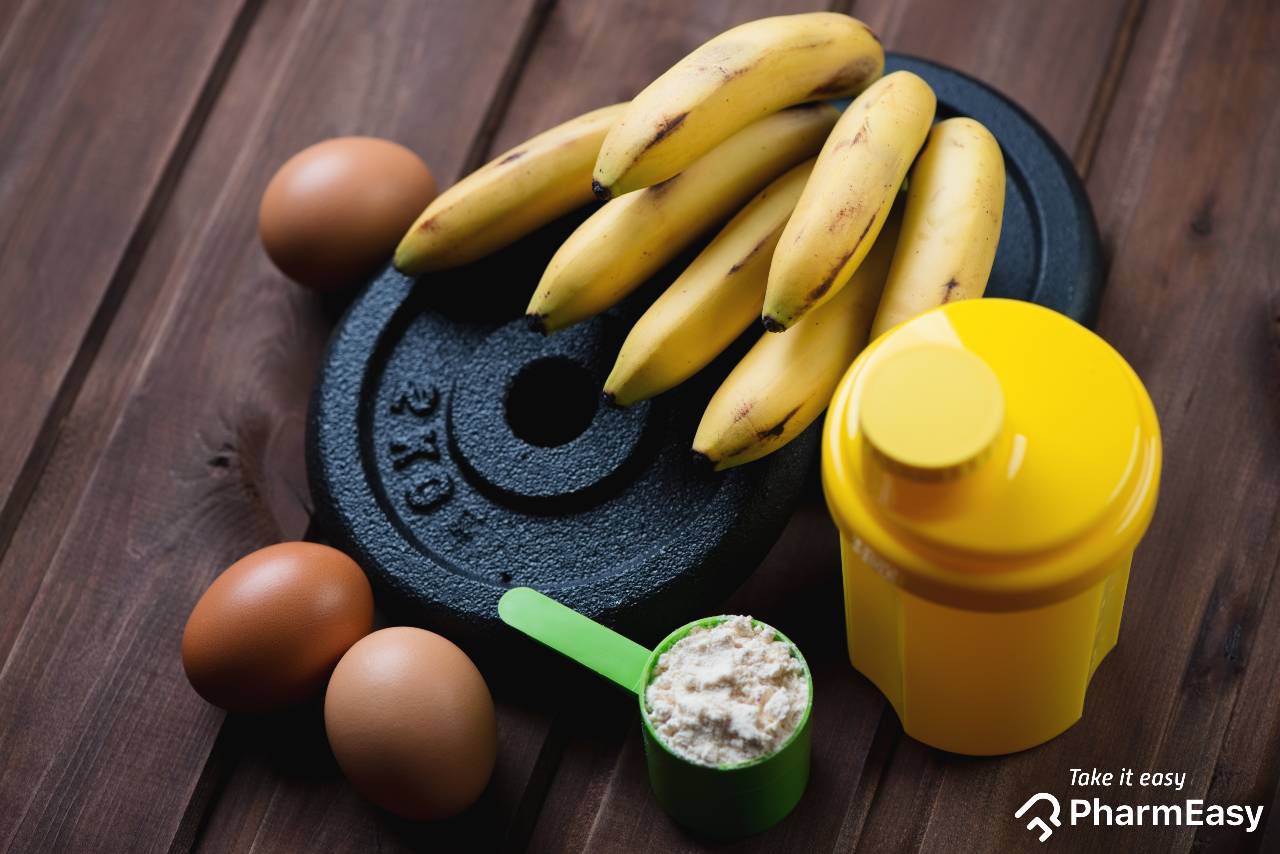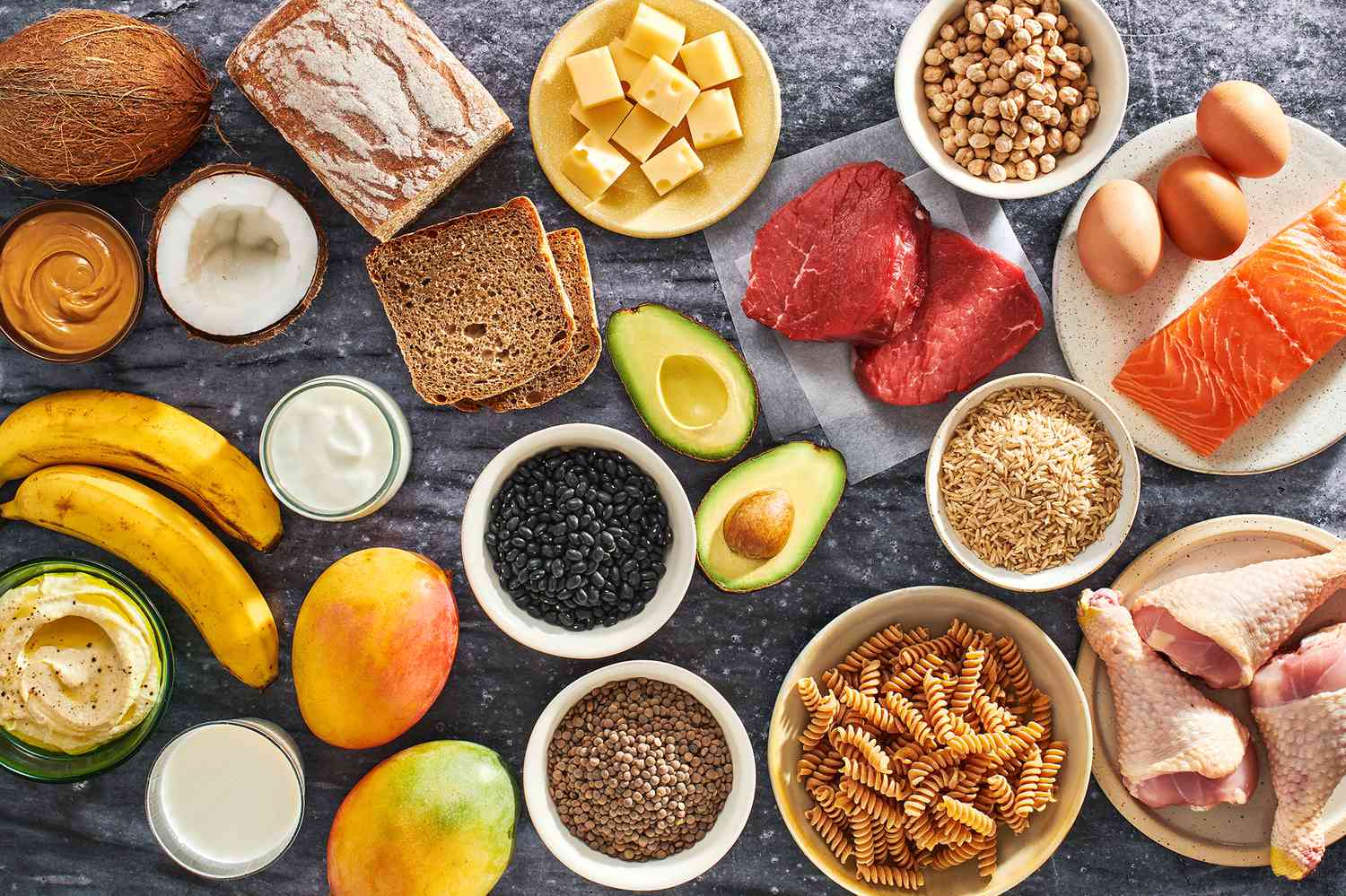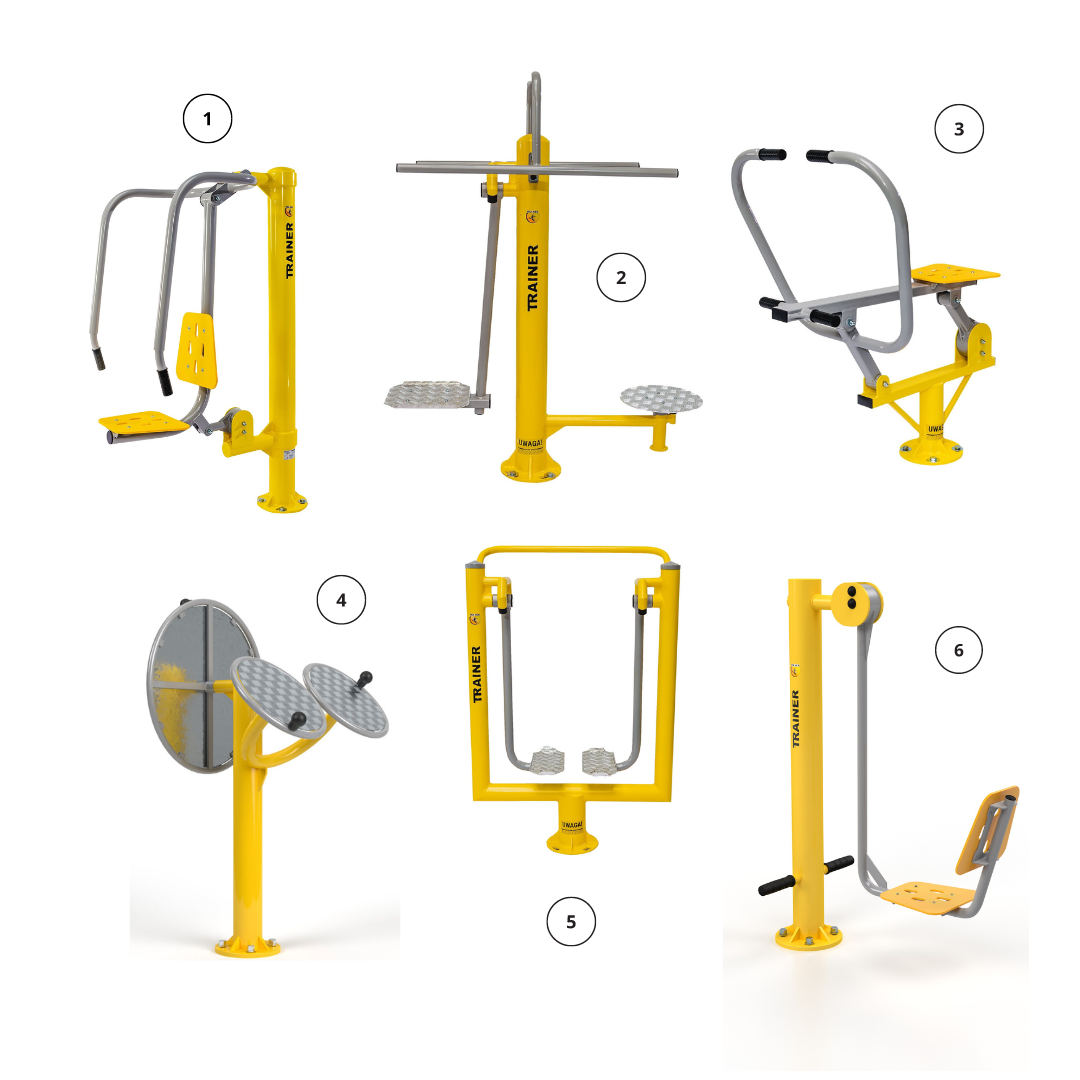What Healthy Food Can I Eat to Gain Weight, eat nutrient-dense foods like avocados, nuts, seeds, whole grains, and lean proteins. Include dairy products and healthy fats.
Gaining weight requires a balanced approach focused on nutritious, calorie-rich foods. Eating nutrient-dense foods helps you gain weight without resorting to unhealthy options. Avocados provide healthy fats and essential vitamins. Nuts and seeds are rich in calories, protein, and healthy fats.
Whole grains like quinoa and brown rice offer complex carbohydrates and fiber. Lean proteins, such as chicken, fish, and legumes, support muscle growth. Dairy products, including milk, yogurt, and cheese, add calories and essential nutrients. Incorporate healthy fats like olive oil and nut butter to increase calorie intake. A balanced diet ensures healthy weight gain without compromising overall health.
Credit: medium.com
Introduction To Gaining Weight Healthily
What Healthy Food Can I Eat to Gain Weight? Gaining weight healthily is crucial for those who are underweight. It is essential to focus on nutritious foods. These foods help in building muscle and maintaining overall health. Eating the right foods can lead to a healthier and stronger body.
Why Gaining Weight Can Be Beneficial
Being underweight can lead to various health issues. These include weak bones, low energy, and a weakened immune system. Gaining weight can help improve these conditions. It can also boost your mood and energy levels. A healthy weight supports better body function.
The Importance Of Nutritious Foods
Nutritious foods are key to gaining weight healthily. They provide essential vitamins and minerals. These nutrients support muscle growth and overall health. Here are some examples of healthy foods to include in your diet:
- Nuts and Seeds: These are rich in healthy fats and proteins.
- Whole Grains: Foods like brown rice and oats provide energy and fiber.
- Lean Proteins: Chicken, fish, and tofu help build muscle.
- Dairy Products: Milk, cheese, and yogurt are great for calcium and protein.
- Fruits and Vegetables: These offer essential vitamins and antioxidants.
Here’s a simple table to summarize some nutritious options:
| Food Category | Examples |
|---|---|
| Nuts and Seeds | Almonds, Chia seeds |
| Whole Grains | Quinoa, Barley |
| Lean Proteins | Turkey, Legumes |
| Dairy Products | Greek Yogurt, Cottage Cheese |
| Fruits and Vegetables | Bananas, Avocados |
Including these foods in your diet can help you gain weight healthily. Make sure to balance your meals and eat regularly. This approach will support your body in building muscle and maintaining health.
Key Nutrients For Healthy Weight Gain
What Healthy Food Can I Eat to Gain Weight? Gaining weight in a healthy way requires a focus on key nutrients. These nutrients help your body build muscle, store energy, and maintain overall health. Let’s explore these essential nutrients for a balanced weight gain journey.
Proteins: Building Blocks Of Muscles
Proteins are crucial for muscle growth and repair. They help build strong muscles and aid in recovery after exercise. Include the following protein-rich foods in your diet:
- Chicken breast
- Fish
- Eggs
- Greek yogurt
- Quinoa
Aim to consume protein with every meal. This helps maintain muscle mass and supports healthy weight gain.
Carbohydrates: Energy Providers
Carbohydrates are the body’s main source of energy. They are essential for fueling workouts and daily activities. Choose complex carbohydrates for sustained energy:
- Whole grains like brown rice and oats
- Sweet potatoes
- Whole wheat bread
- Legumes
- Fruits like bananas and apples
Include a source of carbohydrates in each meal. This ensures you have enough energy throughout the day.
Healthy Fats: Dense Caloric Sources
Healthy fats are important for gaining weight because they are calorie-dense. They also support brain health and hormone production. Incorporate these healthy fat sources into your diet:
- Avocados
- Nuts like almonds and walnuts
- Seeds such as chia and flaxseeds
- Olive oil
- Nut butters
Adding healthy fats to meals can increase your caloric intake. This makes it easier to achieve a calorie surplus for weight gain.
Combining these key nutrients in your diet helps achieve a healthy weight gain. Remember to balance your intake of proteins, carbohydrates, and healthy fats for optimal results.
Top Foods To Include In Your Diet
Gaining weight in a healthy way requires eating nutrient-dense foods. Choosing the right foods ensures you gain muscle, not just fat. Below are top foods to include in your diet to help you gain weight in a healthy manner.
Nuts And Seeds: Nutrient Powerhouses
Nuts and seeds are rich in healthy fats and protein. They provide essential nutrients and calories. Some great options include:
- Almonds
- Walnuts
- Chia seeds
- Flaxseeds
Include these in your daily snacks or add to meals. They can be sprinkled on yogurt or salads. You can also blend them into smoothies.
Lean Meats And Fish: High-quality Protein
Lean meats and fish are excellent sources of protein. They help build muscle mass. Some top choices are:
- Chicken breast
- Turkey
- Salmon
- Tuna
Grill, bake, or steam these for the best results. Avoid frying to keep your meals healthy.
Whole Grains: Sustained Energy
Whole grains provide sustained energy and are rich in fiber. They are perfect for healthy weight gain. Some beneficial whole grains include:
- Quinoa
- Brown rice
- Oats
- Whole wheat bread
Add these to your breakfast or main meals. They help keep you full and energized throughout the day.
Dairy Products: Calcium And Protein
Dairy products are great sources of calcium and protein. They support bone health and muscle growth. Consider these options:
- Milk
- Cheese
- Yogurt
- Cottage cheese
Include dairy in your daily diet. Drink a glass of milk with meals or enjoy a yogurt parfait.

Credit: www.healthline.com
Smoothies And Shakes: Liquid Nutrition
What Healthy Food Can I Eat to Gain Weight? Gaining weight doesn’t have to be a struggle. One delicious way to add calories is through smoothies and shakes. These drinks are easy to make and can be very nutritious. They are perfect for a quick meal or a post-workout snack. Let’s explore some tasty recipes and the best ingredients for nutrient-rich shakes.
Recipes For High-calorie Smoothies
Here are some high-calorie smoothie recipes that are both tasty and healthy:
- Peanut Butter Banana Smoothie: Blend 1 banana, 2 tablespoons peanut butter, 1 cup whole milk, and 1 tablespoon honey.
- Avocado Chocolate Smoothie: Combine 1 ripe avocado, 2 tablespoons cocoa powder, 1 cup almond milk, and a handful of spinach.
- Berry Protein Smoothie: Mix 1 cup mixed berries, 1 scoop protein powder, 1 cup Greek yogurt, and 1 tablespoon chia seeds.
Best Ingredients For Nutrient-rich Shakes
These ingredients will make your shakes both calorie-dense and nutritious:
| Ingredient | Benefits |
|---|---|
| Nut Butters | High in healthy fats and protein. |
| Whole Milk | Rich in calories and calcium. |
| Avocado | Packed with healthy fats and vitamins. |
| Protein Powder | Boosts muscle growth and recovery. |
| Greek Yogurt | High in protein and probiotics. |
| Chia Seeds | Excellent source of omega-3 fatty acids. |
Meal Planning Strategies
Gaining weight healthily requires a well-structured meal plan. It’s important to understand how often to eat and how much to consume. These strategies will help you gain weight efficiently and healthily.
Frequency And Timing Of Meals
Eating frequently helps you consume more calories. Aim to eat every 3 hours. This can include three main meals and two to three snacks. Eating at regular intervals keeps your energy levels stable.
Start your day with a calorie-dense breakfast. This sets the tone for your day and helps you meet your calorie goals. Consider adding snacks between meals. Healthy snacks can contribute to your overall calorie intake.
Portion Sizes For Weight Gain
Increasing portion sizes is crucial for weight gain. Focus on nutrient-dense foods. These include nuts, seeds, avocados, and whole grains. Incorporate protein-rich foods like eggs, chicken, and legumes.
Here’s a sample table for portion sizes:
| Food | Portion Size |
|---|---|
| Almonds | 1/4 cup (about 30 grams) |
| Chicken Breast | 1 medium piece (about 150 grams) |
| Brown Rice | 1 cup cooked (about 195 grams) |
| Avocado | 1/2 medium fruit |
Include healthy fats in your meals. They are calorie-dense and help increase your overall intake. Examples are olive oil, coconut oil, and nut butters.
Use whole milk and full-fat yogurt instead of their low-fat counterparts. These options provide more calories and nutrients.
Here is a simple checklist to follow:
- Eat every 3 hours
- Include snacks between meals
- Increase portion sizes
- Focus on nutrient-dense foods
- Use healthy fats
By following these strategies, you can gain weight in a healthy manner. Remember to listen to your body and adjust as needed.
Snacks That Pack A Punch
Gaining weight doesn’t have to be unhealthy. Choosing the right snacks can help you add pounds in a healthy way. These snacks are not only nutrient-dense but also delicious and easy to prepare.
Healthy Snacking Options
Healthy snacks can fuel your body and help you gain weight. Here are some options:
- Nuts and Seeds: Almonds, walnuts, and chia seeds are great choices. They are rich in healthy fats and protein.
- Greek Yogurt: High in protein and probiotics. Add fruits and honey for extra calories.
- Avocado Toast: Whole grain toast with mashed avocado. Sprinkle some salt and pepper.
- Protein Bars: Look for bars with natural ingredients. Avoid those high in sugar.
- Cheese and Crackers: Choose whole grain crackers and full-fat cheese.
Timing Your Snacks For Maximum Benefit
Timing your snacks can make a big difference in weight gain. Here are some tips:
- Mid-Morning Snack: Eat a small snack between breakfast and lunch. This keeps your energy up.
- Afternoon Snack: Have another snack a few hours after lunch. This helps avoid overeating at dinner.
- Evening Snack: A light snack before bed can add extra calories. Choose something easy to digest.
| Snack | Calories | Benefits |
|---|---|---|
| Nuts and Seeds | 150-200 | Rich in healthy fats and protein |
| Greek Yogurt | 100-150 | High in protein and probiotics |
| Avocado Toast | 250-300 | High in healthy fats and fiber |
| Protein Bars | 200-250 | Convenient and nutrient-dense |
| Cheese and Crackers | 200-250 | Good source of calcium and protein |
Challenges In Gaining Weight
Gaining weight can be as difficult as losing it. Many people face various obstacles. Understanding these challenges is key. It helps you develop effective strategies.
Common Obstacles And How To Overcome Them
Several common obstacles hinder weight gain:
- Fast Metabolism: Some people burn calories quickly.
- Poor Appetite: Many struggle with feeling hungry.
- Digestive Issues: Digestive problems can prevent nutrient absorption.
To overcome these obstacles, consider the following tips:
- Increase Caloric Intake: Eat calorie-dense foods like nuts, avocados, and whole grains.
- Small, Frequent Meals: Eat smaller meals more often throughout the day.
- High-Protein Snacks: Incorporate protein shakes or bars between meals.
- Digestive Enzymes: Use supplements to aid digestion if needed.
Staying Motivated Throughout The Process
Staying motivated is crucial for weight gain. Here are some tips to keep you on track:
- Set Realistic Goals: Aim for gradual weight gain, like 1-2 pounds per week.
- Track Your Progress: Keep a food diary and monitor your weight regularly.
- Celebrate Small Wins: Reward yourself for reaching mini-goals.
- Seek Support: Join online forums or talk to a nutritionist.
Remember, consistency is key. Stay focused and patient. Your efforts will pay off.
Monitoring Your Progress
Gaining weight healthily is a journey that needs close attention. Monitoring your progress is crucial to ensure you are on the right track. This section will cover how to track your diet and weight and adjust your diet for continued gains.
Tracking Your Diet And Weight
What Healthy Food Can I Eat to Gain Weight? Keeping a food diary helps you stay aware of your eating habits. Write down everything you eat and drink daily. Include portion sizes and the time you ate. This makes it easier to spot patterns and areas for improvement.
Weigh yourself regularly to track your progress. Use a digital scale for accuracy. Weigh yourself at the same time each day, preferably in the morning. Record your weight in a journal or a mobile app.
Consider using a calorie-tracking app. These apps help you monitor your daily intake. They offer insights into your calorie consumption and nutrient intake. Examples of popular apps include MyFitnessPal and Cronometer.
Adjusting Your Diet For Continued Gains
What Healthy Food Can I Eat to Gain Weight? If you notice slow progress, you may need to adjust your diet. Increase your calorie intake by adding healthy snacks between meals. Some good options are nuts, seeds, and dried fruits.
Focus on nutrient-dense foods to maximize your calorie intake. Include avocados, whole grains, and lean proteins. These foods provide essential nutrients and help you gain weight.
Monitor your protein intake to support muscle growth. Aim for 1.6 grams of protein per kilogram of body weight. Good protein sources include chicken, fish, eggs, and legumes.
Stay hydrated by drinking plenty of water throughout the day. Dehydration can hinder your weight gain efforts. Aim for at least 8 glasses of water daily.
| Food | Calories per Serving | Benefits |
|---|---|---|
| Avocado | 234 | Rich in healthy fats and fiber |
| Almonds | 160 | High in protein and healthy fats |
| Quinoa | 222 | Complete protein and high in fiber |
| Salmon | 206 | Rich in omega-3 fatty acids |
Review your progress every two weeks. Adjust your diet based on your weight and goals. Be patient and persistent for the best results.

Credit: pharmeasy.in
Frequently Asked Questions
What Is The Healthiest Food To Gain Weight?
The healthiest foods to gain weight include lean meats, nuts, seeds, whole grains, avocados, and dairy products. These options provide essential nutrients while promoting muscle growth and overall health.
How Can A Skinny Person Gain Weight?
To gain weight, eat calorie-dense foods like nuts and avocados. Include protein-rich foods and complex carbs. Strength training helps build muscle mass. Eat frequent meals and snacks. Stay consistent.
How To Gain 10 Pounds In A Month?
Increase calorie intake with nutrient-dense foods. Eat protein-rich meals and snacks. Drink high-calorie smoothies. Strength train regularly. Get adequate sleep for muscle recovery.
What Are High Protein Snacks For Weight Gain?
High protein snacks for weight gain include Greek yogurt, protein bars, nuts, cheese, hard-boiled eggs, and peanut butter sandwiches.
Conclusion
Choosing the right healthy foods can help you gain weight effectively. Focus on nutrient-dense options like nuts, seeds, and avocados. Incorporate lean proteins and complex carbs for balanced nutrition. Remember, consistency is key to seeing results. Enjoy your journey to a healthier, stronger you!




Leave a Reply